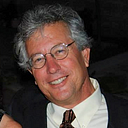CHatGPT and the “Historical Fiction Letter” Writing Assignment
A typical high school US History class writing assignment calls on students to produce a historical fiction letter describing some important event in American history.
The historical fiction letter that I typically ask my students to produce calls on them to first take a close look at the picture appearing above and then assume the following:
- You are a 19-year-old Chinese transcontinental railroad worker named Hung Wah, and you are writing your letter to your father while sitting on a stool located next to one of the tents featured in the photograph.
- It’s November 30, 1867, and these tents are located less than 100 yards east of Donner Pass Summit Tunnel #6.
- It’s shortly before bedtime.
- Your father is a farmer living in Guangdong Province, China.
Then I set the student loose with most, within a short period of time, learning from a simple Google search that on November 30, 1867, a Central Pacific steam locomotive for the first time ever, thanks to the Chinese transcontinental railroad workers, traveled through what today is called Historic Donner Pass Summit Tunnel #6.
If they then do the following four things, they can end up producing a historical fiction letter similar to the one appearing in italics below:
- Use ChatGPT to learn about the digging of Donner Pass Summit Tunnel #6, the life of the Chinese transcontinental railroad worker, and the history of the transcontinental railroad.
- Ask CHatGPT to assume a number of other things based on what they’ve learned from their CHatGPT research.
- Utilize their creative and critical thinking skills
- Apply a bit of basic editorial polish
Dear Father,
I am writing to you shortly before bed time from a wooden stool located just outside of my tent.
I’m also writing to you from a spot that’s less than 100 yards east of Donner Pass Summit Tunnel #6 and though the sun has already set, I can see in front of me, because it’s a full moon, a Central Pacific steam locomotive attached to eight eight wagons, most of which appear to be passenger wagons. This train, several hours ago, was the first train ever to travel through Donner Pass Summit Tunnel #6, and it was a sight to behold. As the train chugged through the tunnel, the sound of the whistle and the steam engine echoed through the mountains, marking a historic moment for our country.
As I sit here and think about it all, I can’t help but feel a sense of pride and accomplishment for what we, the Chinese transcontinental railroad workers, have achieved.
We all know we’ve accomplished something that’s historiclly special and that will stand the test of time, with work on this tunnel having started about a year ago.
Since then, we have been working tirelessly to dig through the rugged mountain and treacherous terrain where this tunnel can be found.
We have dug the tunnel by hand, using only pickaxes and shovels, each day, starting at sunrise and working until sunset, with only a short break for lunch.
Despite the grueling labor, we all knew, every day, that our hard work would pay off in the end.
Despite how good I feel for what the Chinese accomplished here, I also feel a sense of sadness and remorse for all those who were either hurt or lost their lives during the construction of this tunnel. One of my friends, Xing Li, lost his life three weeks earlier when asked to use nitroglycerin to speed up the process of digging the tunnel. It was a tragic reminder of the dangers of our work, and a reminder that we must always be vigilant and cautious.
As I sit here, I also can’t help but think about the future and the impact that this tunnel will have on this country. The transcontinental railroad, when completed, will connect the East and West coasts of America, and will surely improve this country’s trade and commerce greatly. It will also make it much easier for people to travel and migrate to different parts of the country.
I would go on and tell you more about the tunnel and our work, but it’s starting to snow and get very cold and so I need to go into my tent to get warm. Also, I have no more time to write because I have to get some sleep. Tomorrow, I will be expected to get up early and start to work on Tunnel #7. The “foremen” and “superintendents” keep us super busy here.
Just one more thing — in the event you’re wondering what we all eat — we mostly eat rice, dried or pickled fish, and dried or pickled vegetables, though some of the workers also eat fresh vegetables, which they somehow manage to grow. I’m lucky; they share. I’m also lucky because once in a while we are able to buy meat from local Chinese merchants.
I miss you and our family, and I look forward to the day when I can return home and see you all again.
Sincerely,
Hung Wah
